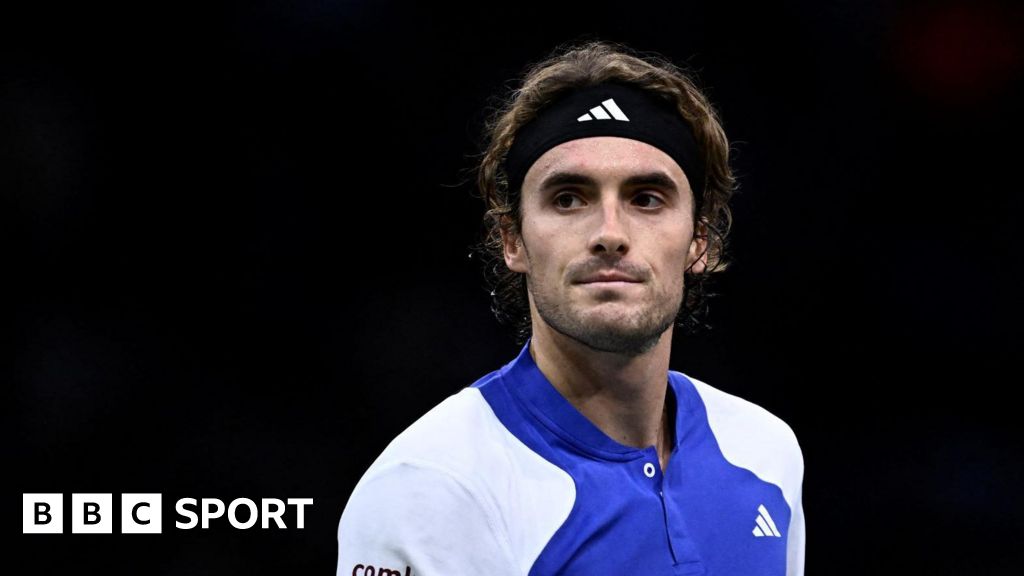Stefanos Tsitsipas: Two-week ATP Masters events are ‘a drag’

Tsitsipas is among the leading players who have spoken out recently about what they see as increasingly unreasonable demands in scheduling.
Poland’s five-time major champion Iga Swiatek said there are “too many tournaments in the season”, while France’s Caroline Garcia spoke about the mental impact of the “constant grind of tennis” after ending her season early.
Britain’s Jack Draper said he feels the calendar will make it hard for the next generation to achieve “longevity”.
The discussion has been reopened following the conclusion of the ATP event in Paris, which is one of the remaining week-long Masters.
“If the goal was to ease the calendar, extending every 1,000 to two weeks is a backwards move,” Tsitsipas said.
“Sometimes it feels like they’re fixing what wasn’t broken.”
ATP chairman Andrea Gaudenzi has said the expansion of the 1,000 events has increased financial opportunities for more players and enhanced recovery time.
“We recognise the concerns raised by some top players that longer events can introduce an element of fatigue or burnout related to being away from home for extended periods,” he said in a statement to BBC Sport last month.
“However, players ultimately have the autonomy to craft their own schedules based on their priorities – a freedom that comes with being independent contractors, unlike many other sports where players are bound by fixed schedules.”
Related
Cameron Norrie advances at Indian Wells but top seed Alexander…
Great Britain's Cameron Norrie fought from a set down to reach the third round at Indian Wells but top seed Alexander Zverev was d
Tommy’s Time: All-Court American Seeks Next Milestone
His coach Brad Stine says that these types of big goals are what keeps the New Jersey native motivated. “There are still a lot of things within the sport tha
Nick Kyrgios acknowledges uncertain future after retirement from match with…
The latest setback for Nick Kyrgios has the Australian tennis player wondering aloud about his future. A nagging wrist injury forced an emotional Kyrgios to r
Former Indian Wells champion says she is ‘very sorry’ as…
The 2025 Indian Wells tournament is well underway as the stars of the WTA Tour search for success in the Californian desert.Several top stars will believe they












